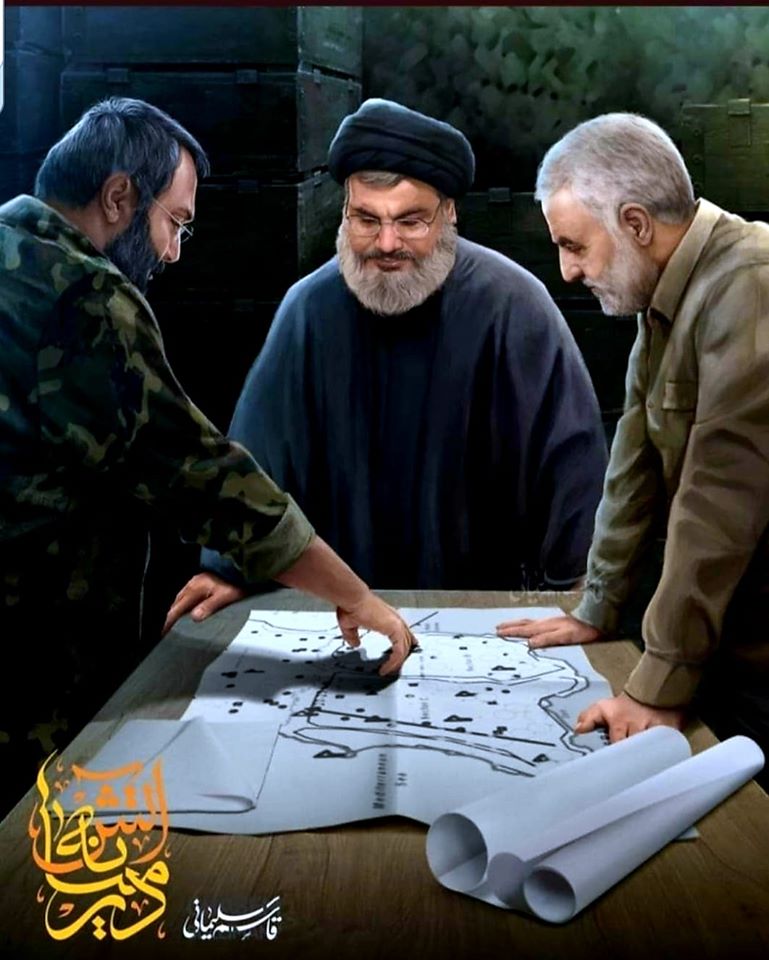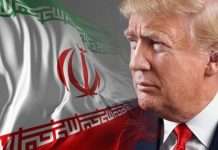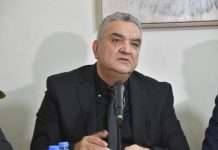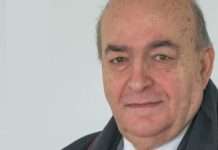Does Hezbollah pay electricity bills?
Khaled Abou Zahr/Arab News/February 21/2020
خالد ابو ظهر: ترى هل يدفع حزب الله فواتيره الكهربائية أو أية ضرائب على اعماله واستيراداته من إيران وتجارته ومعاشات افراد ميليشياته؟
I often wonder, does Hezbollah pay electricity bills?
Does it pay social security contributions on the salaries it pays in cash?
Does it pay customs duty on the weapons it imports from Tehran?
Does it pay the required fees for its construction works?
Did it get authorization from the government and pay the appropriate fees to build a statue of Qassem Soleimani last week?
Finally, to whom do government utilities representatives complain when Hezbollah does not pay its bills?
To be fair, this applies to most of the political formations and centers of power in Lebanon, not only Hezbollah. The country’s administration has been built to reflect the narrow political representation and the way the factions negotiate with each other. The same focus one notices in negotiations for the formation of a coalition government applies to the rest of the administration of the country.
This means that politicians control hiring and spending but are not focused on proper governance and serving their constituents; instead their focus is on ensuring they grab a share of the pie for themselves and their allies. One could easily imagine that a random discussion along the lines of “If you name one person to be appointed, or get this from that state institution, then my share is this” is common during political deals in Lebanon.
As the country begins discussions with the International Monetary Fund (IMF) to secure a rescue plan, given that more than $7 billion in debt and interest payments is due to be repaid this year, not much can be expected. Not only are the banks in negative equity, the entire country is. The banking sector, which was a depicted as a key factor in the success of the economy, will have to pay a hefty price.
The question is who will bear the cost? Will it be the banks, which are mostly owned by politically affiliated businessmen, or will it be the small depositors who have not been able to access their accounts, have seen their life savings disappear and are going bankrupt? I think we all know the answer to that and therefore understand why the Lebanese protests are not about to end but are about to get worse.
This will, unfortunately, not be enough.
Lebanon might manage to pay back some of the debts that are due this year, or negotiate a temporary moratorium, but it will not be able to honor its commitments without a bailout or financial support.
However, after getting the proper advice from the IMF about the reforms that are needed, in the current political situation nothing will really change because the root cause of the nation’s crisis will remain.
Therefore, Lebanon will not be able to convince any international financial institution that it will implement the strong program of reforms necessary to get a bailout.
Regionally, given the situations in Syria and Iraq, Lebanon has lost its strategic relevance and Gulf countries have already sunk billions into the country at a loss.
In trying to predict what happens next and what will trigger a deterioration of the situation in the country, therefore, one can compare Lebanon with other countries that went through similar situations.
Comparisons with Greece do not really apply as it benefited from the support of the EU, but it is worth noting that the country still experienced pensions losses and a rise in unemployment, which led to social instability.
Political and sectarian groups that have acted as parasites, feeding on national institutions, will do what parasites do when one host dies: Move on to another.
The closest benchmark comparison to Lebanon seems to be a combination of the Latin American debt crisis of the 1980s and the current situation in Venezuela, which has a weak centralized government located in a highly volatile region. In short, we can say that it seems likely that the situation is about to get extremely difficult and dangerous, on all levels, for the people of Lebanon.
The protests will continue and might become more socially and financially motivated when pensioners do not get their checks, depositors lose all or part of their savings and employees go unpaid.
This will put the country’s security and sovereign institutions under extreme pressure; one might say enough to create divisions and splits from within. As the security situation deteriorates, government services will cease functioning, medicine will be hard to find, and food will become scarce. The government will break down and so sectarian political leaders will once again become the last resort for people in a territory — not a country — ruled by chaos and non-state actors.
Political and sectarian groups that have acted as parasites, feeding on national institutions, will do what parasites do when one host dies: Move on to another.
Therefore, the only solution is for the army to step in and force change by supporting the protesters and establishing a new committee, which excludes all existing political formations, to govern the country and create a new constitution. The future of all in the country will be much bleaker if they persist in their inaction.
*Khaled Abou Zahr is CEO of Eurabia, a media and tech company. He is also the editor of Al-Watan Al-Arabi.



















